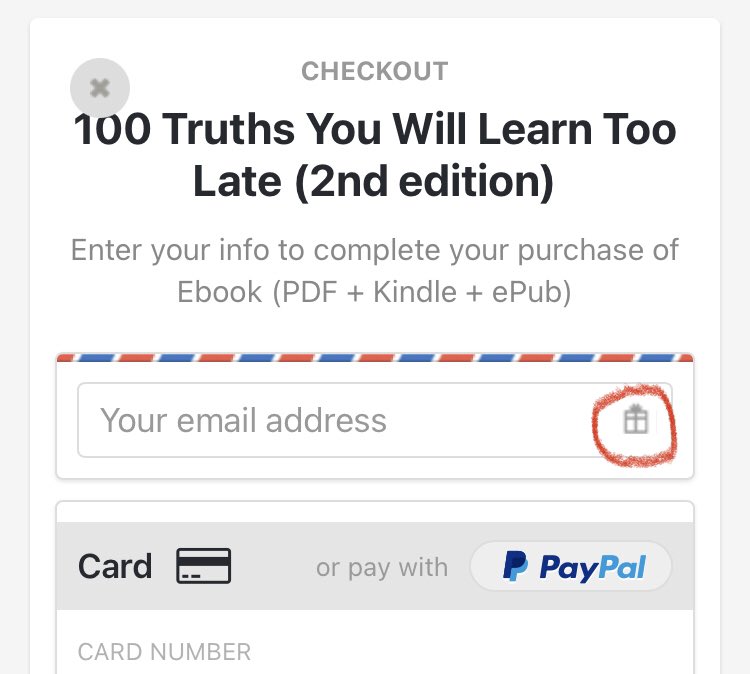
Last minute gift?
Send your friends a copy of my book “100 Truths You Will Learn Too Late”
33% OFF until Christmas!
gum.co/100Truths/gift
(use the “gift” icon as shown below and follow the instructions)
Send your friends a copy of my book “100 Truths You Will Learn Too Late”
33% OFF until Christmas!
gum.co/100Truths/gift
(use the “gift” icon as shown below and follow the instructions)

It’s a rare opportunity to grab my book for less than usual.
I very seldom run promotions.
Also, you can use it to gift the book and its learnings to a friend.Perfect to read during the holidays and start the new year from a new perspective.
I very seldom run promotions.
Also, you can use it to gift the book and its learnings to a friend.Perfect to read during the holidays and start the new year from a new perspective.
https://twitter.com/DellAnnaLuca/status/1337353044158259200
Excerpt here: luca-dellanna.com/100-Truths
(That’s a review of the first version; the typos have been fixed in the second one. But if the book gets
⭐️⭐️⭐️⭐️⭐️ with typos, you know it’s really good.)
⭐️⭐️⭐️⭐️⭐️ with typos, you know it’s really good.)

• • •
Missing some Tweet in this thread? You can try to
force a refresh






